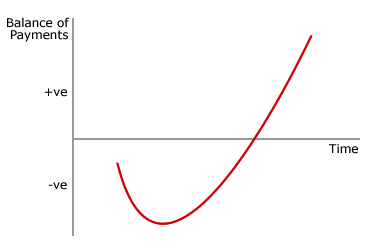Why Politicians Will Never Pass Good Policy
Politics as a spectator sport.
I'm a politics junkie. Some people have baseball or football, I have the news. The good thing about being a politics junkie is that the season never ends. Think of election cycles as playoffs, division championships, and Super Bowls depending on the scope of the election.
The good news is, like in other sports, we get all the juicy tidbits of their personal lives off the field. From corruption, scandals, and prostitutes the action never dies. But that's not why the public cares about politics... right?
Absolutely not. It's their actions while they're playing the game that keep us tuned in. The legislation, policy formulation, and current porposals that keep us glued to their every move. We watch a politician amend a bill with the same nervous tension that we watch a star quarterback throw a fourth quarter pass to a receiver in double coverage.
No? Oh, right... I forgot. We love the scandals, the lies, the deception, and the falls from grace of those that were elected to serve our needs. And once we get past all that we love chastising them for the stupid policy decisions they make. If most of them went to some of the country's most elite institutions, why do these apparently intelligent people make such dumb moves? It's elementary, my dear Watsons. Elections.
Common sense is often based on the least common denominator.
The primary objective of a politician once in office is to stay in office. It's actually a pretty cushy job. The salaries are great, you have a public forum from which to preach, you get to feel important, and the healthcare plan is pretty top-notch. Not to mention all the connections available to you (whether they're legal or not is another often-forgotten matter.) Oh right, and I guess the good feeling you would get from knowing that you're doing your duty to serve the public. So at the end of the day job security is your only real concern.
Which is where the rest of us come in. We need to vote in order to give these people their jobs. The downside to this system is if it weren't for a voting public I would bet that we'd have some pretty good policy in this country. The unfortunate thing about voters are that rational human beings in large numbers suddenly act less rationally. You can try this at home: get a group of three or four friends together and give yourself a task, any task at all, and get it done. Now try the same thing with ten friends. Then fifty, and so on and so forth. Soon you'll get a couple thousand people in the same place supposedly working towards the same goal, but you can see where this can go. Mobs. Riots. Reality television. All are the product of what were once rational people acting irrationally because of the ignorance of group mentality.
Now I'm not calling the public at large dumb, but if you try and explain good policy to the voting public you'll often see that after it goes through the various filters of political aides, spokespersons, the press, the guy at the end of the bar who likes to shout nonsense at the TV whenever your mayor's talking... you see where I'm going with this. So politicians have a tough job explaining themselves to the public, especially when the public is generally reduced to the least common denominator thanks to all the filters information must pass through before it reaches you.
The disastrous implications of the J-Curve.
Now think about policy formulation for a moment. Generally speaking, new policy arises when old policy fails. So in order to progress as a civilization we need to do away with or improve on things from time to time. In order to do this we usually need to take a hit first. Your water heater is old and dated, but there are many great water heaters out there that are vastly more efficient and will save you tons of money on your heating bills in months and years to come. But in order to reap the rewards of this you have to buy and install this wonderful new appliance, and although it will more than pay for itself in savings it is initially not a cheap venture. Policy is the same way, and enacting expensive policy to see eventual returns is often called a J-Curve (see the graph below.)

In order to revamp and overhaul "the system," for lack of a better word, we would need to take a couple hits first. To switch to renewable energy resources, for example, would take a policy shift in this country spanning years. And it would be costly. Think of it as replacing all of America's water heaters with newer, fancier, more fuel-efficient, cleaner ones. Obviously this is going to be a very costly bit of policy. You can see how if you plotted this out on a graph it would look like a J - you start at one point, you spend moneyon newer and better things and your cash reserves dip down, but over time after you see the benefits from savings they come up to the original point and eventually surpasses the status quo and soars upward. We're now in a better place than we were, but we needed to take a bit of a dip first.
So why not invest in it now, and in a matter of time we can all enjoy the benefits? After all, with the way things are going nowadays people are screaming for Change. It's about time we did something about it! So our local elected official agrees and is going to spend your tax dollars on implementing more effective policies because he knows that we'll all understand why we need to pinch pennies and tighten our belts for a couple of years. We'll see the infinite wisdom of his actions and re-elect him to another term.
Unfortunately when you reduce a voting public to its least common denominator you rarely see rational action. The public doesn't understand J-Curves on a mass scale. We can all see the benefit of such actions in our own lives, but why not on a bigger scale? Economists really don't know the exact answer, and there are many theories out there which I won't get into: gains-loss asymmetry, peoples' need for immediate gratification, etc. Personally, I feel that people elect someone they think will do good for them, and if they see things worsen (the dip in a J) then they get angry. Shifting policy is a lot like turning a cruise-ship around, it's slow and gradual. However, election cycles are generally not long enough to see the return on one's investment. You voted this guy in for a reason, and now all he did was hit you where it hurts. Next election comes around and he's voted out with extreme prejudice. The new guy can now come in and simply maintain the status quo and reap the rewards (the upswing of the J) of the old guy's policy! And if a politician's main goal in life is to get re-elected then he knows damn well not to screw with the system too much. Instead he opts for extremely small, minute changes that don't have much bang but are great for publicity and staging photo ops.
We think of "the government" as this colossus that has the ability to do what we want it to do when we want it. That's why we vote. We believe if we finally get the right guys in office they can do this. But we're impatient. We voted yesterday so we want our comeuppances today, and when we don't see them our justice is swift.
So in this upcoming election,when what our country needs more than ever is to turn this cruise-ship around, think of the J-Curve. If we really want change it's got to be an investment. It's gonna hurt first, but the rewards will leave us exponentially higher.









